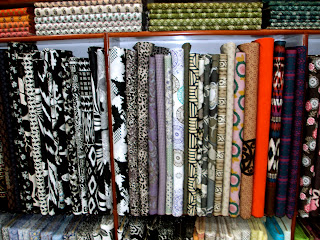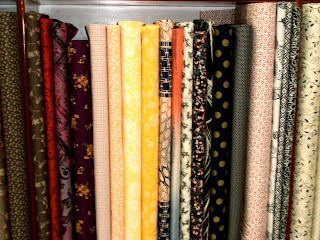Almost every time I've been on the road in India, day or night, in a car or rickshaw, a beggar has approached the window and asked for money or food. Sometimes they are visibly handicapped, or they are carrying a small child, or, worst of all, they are small children themselves.
Anyone here will tell you to give them nothing. They tell you that if you do, they will write down the license plate number of your car so they can harass you later, or that other beggars will see and mob you. Most of us have seen Slumdog Millionaire, and I've learned that there is a reality to the film's representation of begging rings and scams. Poverty is real and painfully visible in India, but many beggars are controlled by gang leaders who will take a large portion of whatever they earn. It's almost impossible to help them by giving them a snack bar or Rs. 10. They probably won't get to keep it.
Like most people, this is almost incomprehensible to me. Coming from America, where poverty is a crime these days, India's problems seem impossible to solve. There are several complex causes of the situation here, but above all, there the problem that, for some, poverty is lucrative. People make thousands of dollars from it everyday. Millions of people in India are poor because there is a very powerful group of people that profit from their misfortune. It's human trafficking, perhaps not at it's worst, but trafficking nonetheless. To make matters worse, like sex, gendercide, and the caste system, poverty is a taboo topic in India.
So what to do? I don't know. Here, poverty is a business, and I am no businesswoman (or economic expert for that matter, or anything of the sort).
The woman below came up to my rickshaw today. In the open air of a rickshaws there is no window to shield me from her pleas, spoken in another language, no tinted glass to spare me from the piercing look in her eyes. I've seen her more times than I can count. She always works at the same intersection, and is always carrying the same little boy. Before today, I never noticed she was pregnant. I asked her if I could take her picture, and when she said yes, I gave her ten rupees. Maybe she won't get to keep it, but maybe, just maybe, she will.
Anyone here will tell you to give them nothing. They tell you that if you do, they will write down the license plate number of your car so they can harass you later, or that other beggars will see and mob you. Most of us have seen Slumdog Millionaire, and I've learned that there is a reality to the film's representation of begging rings and scams. Poverty is real and painfully visible in India, but many beggars are controlled by gang leaders who will take a large portion of whatever they earn. It's almost impossible to help them by giving them a snack bar or Rs. 10. They probably won't get to keep it.
Like most people, this is almost incomprehensible to me. Coming from America, where poverty is a crime these days, India's problems seem impossible to solve. There are several complex causes of the situation here, but above all, there the problem that, for some, poverty is lucrative. People make thousands of dollars from it everyday. Millions of people in India are poor because there is a very powerful group of people that profit from their misfortune. It's human trafficking, perhaps not at it's worst, but trafficking nonetheless. To make matters worse, like sex, gendercide, and the caste system, poverty is a taboo topic in India.
So what to do? I don't know. Here, poverty is a business, and I am no businesswoman (or economic expert for that matter, or anything of the sort).
The woman below came up to my rickshaw today. In the open air of a rickshaws there is no window to shield me from her pleas, spoken in another language, no tinted glass to spare me from the piercing look in her eyes. I've seen her more times than I can count. She always works at the same intersection, and is always carrying the same little boy. Before today, I never noticed she was pregnant. I asked her if I could take her picture, and when she said yes, I gave her ten rupees. Maybe she won't get to keep it, but maybe, just maybe, she will.






































